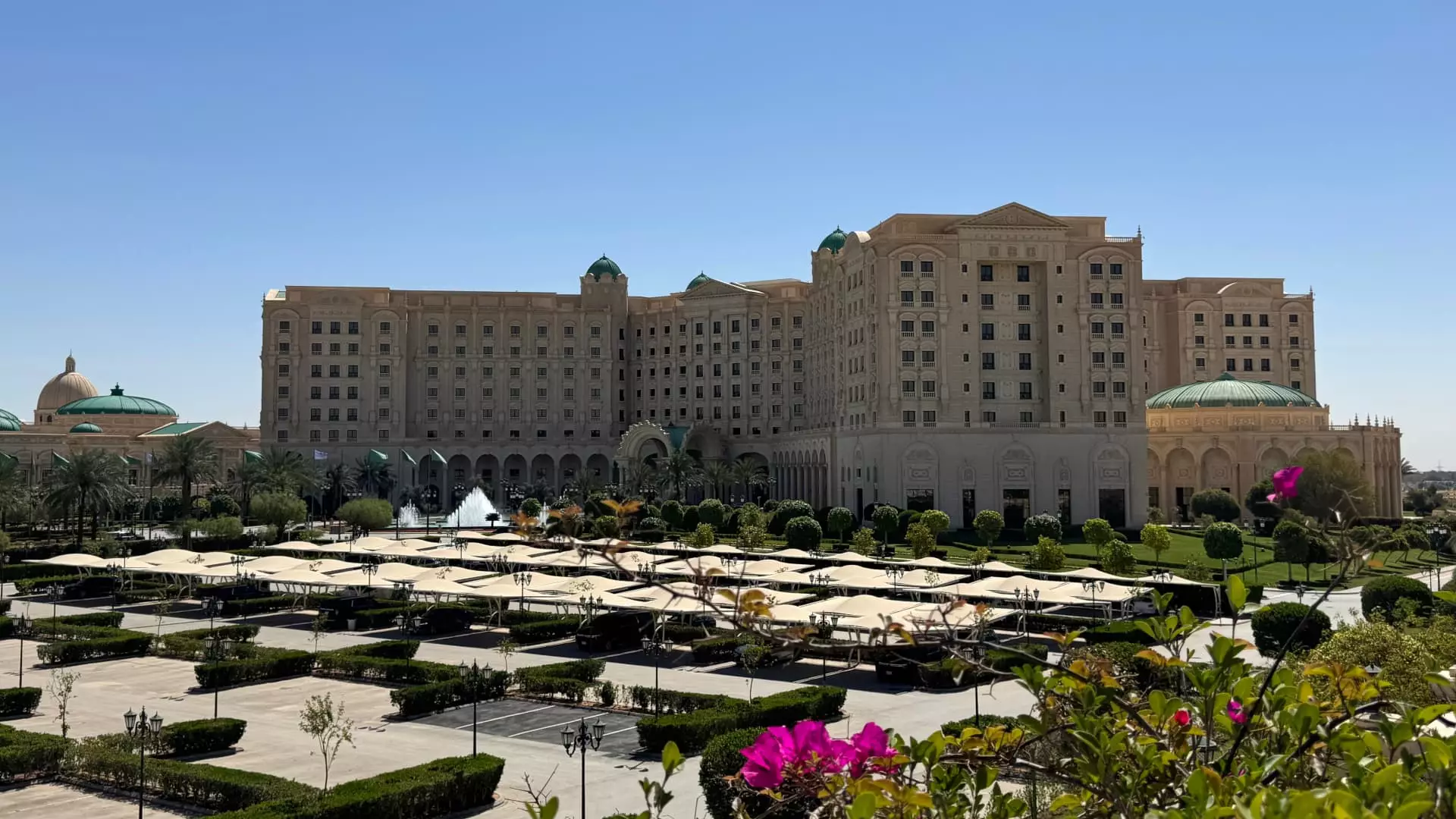Recent agreements secured by the United States with both Ukraine and Russia have sparked a mix of cautious optimism and profound skepticism among international observers. While the discussions in Saudi Arabia mark a step towards a potential ceasefire in the ongoing conflict that has already spanned three years, the fragility of these agreements is glaring. They hinge not only on the good faith of both parties but also on the unwavering enforcement by Washington—a complicating factor that suggests these accords may be more about negotiation optics than genuine resolution. The reality is that when parties are entrenched in hostility, mere agreements often jam the gears of substantive peace, turning them into instruments for temporizing rather than healing.
A Diplomatic Balancing Act
The delicate dance continues as U.S. President Donald Trump intervenes, positioned as an arbiter in this charged geopolitical climate. His approach seems driven by an eagerness to broker a quick resolution, casting shadows over the traditional value of deliberative diplomacy which prioritizes a thorough understanding of ground realities. Both Ukrainian President Volodymyr Zelenskiy and Russian Foreign Minister Sergei Lavrov have called for clear guarantees, but the essence of these negotiations highlights a persistent imbalance between U.S. influence and regional stability. To cast the U.S. as a facilitator without robust diplomatic frameworks risks rendering these agreements toothless.
The Reality of Military Escalation
The ongoing military actions on both sides illustrate a grim truth: cessation of hostilities may remain elusive even in the face of signed agreements. Ukraine’s Defense Minister Rustem Umerov’s declaration regarding Russian naval movements as a potential threat exemplifies this volatility. The two nations have shown a proclivity for military engagement over diplomacy, with Ukraine responding to Russian attacks on its energy infrastructure and initiating its strikes on Russian oil and gas targets. Thus, the notion that any agreement will substantively alter military calculus ignores the larger pattern of aggression that has characterized this conflict.
The High Stakes of Energy Warfare
Energy infrastructure has devolved into a battleground of its own, a legitimate target for both sides’ war strategies. Russia has perpetuated its narrative that attacking Ukraine’s power grid is simply part and parcel of waging war, while Ukraine’s retaliation against energy facilities fueling Russian military efforts underscores a tit-for-tat dynamic. This cycle creates a dangerous precedent where civilian capabilities become collateral damage in a political struggle, raising ethical questions about warfare in the 21st century. The humanitarian toll, particularly on basic needs like power and food, is exacerbated when energy is weaponized.
The Threat of Hasty Solutions
The concern among European allies regarding Trump’s overtures to Russia illuminates the potential pitfalls of hasty diplomatic solutions. Trump’s inclination to push for rapid agreements reflects a troubling desire for quick wins that may ultimately undermine Ukraine’s sovereignty. Critics are right to fear that superficial accords, devoid of genuine concessions on Russia’s end, could lead to long-term instability. The very idea that Trump might recommend Ukraine surrender its NATO aspirations or concede territories claims threatens not only the security of Ukraine but also sets a precedent for autocratic powers violating international norms with impunity.
The Road to Rapprochement
The prospect of sustainable peace feels like an uphill battle as the narrow path to rapprochement opens. While restoring access to Russian markets for agricultural exports may be an enticing incentive, the negotiation dynamics reveal a complex web of interests rarely reconciled in international relations. Economic sanctions and their lifting become tools reflecting the volatility of international politics where one country’s compromise is another’s capitulation. If the agreements devolve into mere gestures devoid of meaningful change, the aspirations of a peaceful Europe could become further obscured.
The Human Factor in Diplomacy
Ultimately, the fate of these agreements will rest upon the countries’ leaders acting with an awareness of their peoples’ lives affected by the war. Diplomatic progress should not read as a mere endorsement of power plays; it must engage with the narratives of ordinary citizens caught in the crossfire. Any future accords must be rooted in tangible security guarantees, genuine coexistence, and a mutual acknowledgment of national sovereignty. Without this human dimension at the forefront, the negotiations may amount to another chapter in a cycle of conflict, rather than a narrative of reconciliation and hope.

